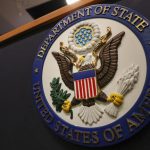On the matter of compassionate assistance to the former employees of LIAT (1974) Ltd
This statement is issued in an effort, once again, to explain and clarify the position of the Government of Antigua and Barbuda, regarding the former employees of LIAT (1974) Ltd.
First, the Antigua and Barbuda Government opposed the decision by the other principal shareholders in LIAT (1974) Ltd to collapse the airline, with no obligation to its employees and creditors. Our preference was to maintain the airline, recognising that it had a crucial role in providing necessary transportation to people of the region and that, without it, regional air transportation for both goods and services would decline to the detriment of tourism, commercial activity and the socialization of the Caribbean people. Indeed, our fear in this regard, has turned out to be true as the traveling public can now attest.
Second, the Government of Antigua and Barbuda, although it had no corporate or legal responsibility to any of the creditors or former employees of LIAT 1974 Ltd, decided to assume a “moral obligation” to provide compassionate assistance to the former employees of LIAT. Our compassionate severance was offered system wide, on a non-discriminatory basis, affording national treatment to all LIAT workers, irrespective of their nationality, in keeping with the spirit of the Revised Treaty of Chaguaramas.
Third, the Government of Antigua and Barbuda made this decision even though it owned only 32 percent of the shares in LIAT (1974) Ltd, and, therefore, should only have a “moral obligation” up to 32 percent to the former workers, who, indeed were employed by all the governments that comprised 100 per cent of the airline’s ownership.
Fourth, despite the dire economic and financial circumstance that resulted from the impact of the COVID-19 pandemic and the scarcity of financial resources, the Government of Antigua and Barbuda decided to offer 50 per cent of what the LIAT employees reasonably might have expected as compensation, if the company had not been declared insolvent.
In other words, the Government decided to use monies and other resources that should have been spent on the needs of the entire population, such as improvement of roads and water supply, to provide compassionate assistance to the former LIAT employees. By any stretch of the imagination, this is a generous offer, recognizing always that no legal obligation of any kind falls to the Government of Antigua and Barbuda, and certainly not for 100 percent of assistance to employees of a company, 68 per cent of which was owned by other Caricom members states.
Fifth, in reality if the principal shareholder governments had taken the view that all of them had a moral obligation to provide assistance to all the former LIAT employees, an offer could have been made, formulated to provide such assistance, according to the ownership shareholding in the company.
This cooperative approach which would have resulted in full settlement of staff severance payments was not pursued by the other shareholding governments, instead a domesticated option was employed ostensibly to limit their liabilities to the staff of LIAT.
LIAT (1974) Ltd was forcefully collapsed as insolvent, in spite of the dissenting view by the Government of Antigua and Barbuda and the recommendation for the establishment of a LIAT 2020 Ltd.
The Government of Barbados severance payment was raised by the Antigua Workers Union, and therefore, I am obliged to address it.
The Barbados government has decided to offer assistance to Barbadian employees only, in a sum it has solely determined in light of its own circumstances. In this regard, neither the Government of Barbados, nor any other shareholder government in LIAT (1974) Ltd, has acknowledged any obligation to the former workers, including those here in Antigua and Barbuda.
Consequently, the position of the Antigua Workers Union that the Government of Antigua and Barbuda should use taxpayers’ money to pay 100 percent of monies to LIAT (1974) Ltd employees and former employees to which they have no legal claim, and for which the Government of Antigua and Barbuda could only reasonably be responsible for 32 per cent, is both reckless, misleading and unhelpful.
The Government of Antigua and Barbuda, as an act of compassion and eminent reasonableness, continues to be committed to settling this matter directly with for the existing and former employees of LIAT (1974) Ltd, in their interest. (Ends)










